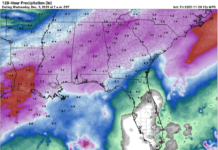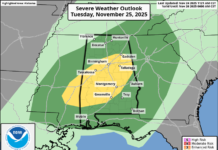The COVID-19 pandemic has people shopping online and ordering from Amazon. Naturally, scammers are finding ways to cash in. Better Business Bureau is receiving reports that con artists are posing as Amazon employees, calling people, and claiming to need information about their account or that something is wrong with an order.
BBB warns to be on the lookout for suspicious calls and emails because in some cases, it looks like the call is coming from BBB.
How the scam works:
The phone rings and when answered, it is a recorded message claiming to be from Amazon stating there is a problem with your Amazon account. The messages range from a fraudulent charge on your Prime card to a lost or damaged package to an unfulfilled order for an iPhone. But no matter what the recording is, these scammers have the same goal: getting your personal information. The con artists will either outright ask for credit card and account login details. Or they will request remote access to your computer under the guise of “helping” to solve the issue.
The Federal Trade Commission published examples of these scam calls (http://bit.ly/3twISov)
There is a confusing twist on this scam. The con artists are spoofing other organizations’ phone numbers to help disguise their calls and lend them credibility – including BBB’s number! That means they probably using other phone numbers too, so watch out.
How to spot this scam:
- Be skeptical of email and unsolicited calls. Some departments at Amazon will call customers, but Amazon will never ask you to disclose or verify sensitive personal information or offer you a refund you do not expect. Amazon will never ask you to make a payment outside of their website and will never ask you for remote access to your device.
- Ignore unsolicited messages that ask for personal information. Amazon will also never send you an unsolicited message that asks you to provide sensitive personal information, such as your tax ID, bank account number or credit card information.
- Ignore calls for immediate action. Scammers try to get you to act before you think by creating a sense of urgency. Don’t fall for it.
- Beware of requests to pay via wire transfer, prepaid debit card or CashApp (such as MoneyPak, iTunes or similar cards). These are almost always a sign of fraud.
- Report it to Amazon. Any customer that receives a questionable email or call from a person impersonating an Amazon employee report them to Amazon customer service. Amazon investigates these complaints and will takes action, if warranted.























